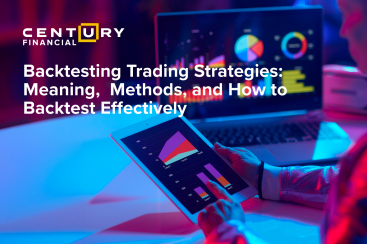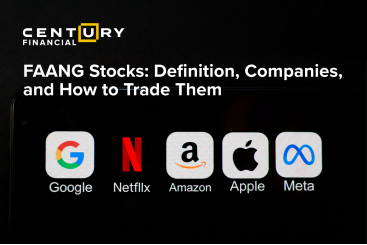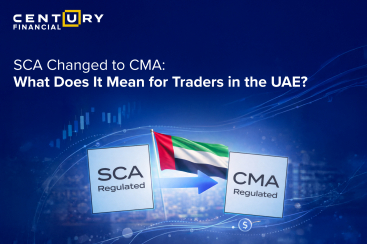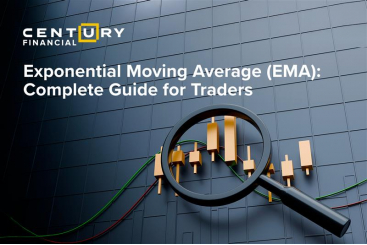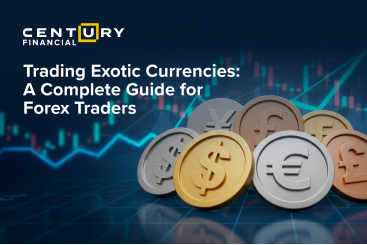Tuesday, October 18, 2022
Knowing the difference between investing and trading
تم إعداد هذا المنشور من قبل سنشري للاستشارات

.jpg)
Investing vs trading has often been heavily debated, and many people have different viewpoints. But first, let's think about the question below.
Do you think apples and oranges are the same?
They are similar in the fact that they both are fruits. But they vary significantly in nutrients and tastes.
Investing and trading are also like apples and oranges. Trading and investing both aim to capture gains from an asset. But how the process results in profits or losses is very different.
Stock market investment and online trading have become increasingly popular during the COVID-19 pandemic. Several retail investors jumped onto the online "trading" train as most of the world was under lockdown.
Before we dive into investing vs trading, let us know a bit more about these two.
What is investing?
Investing is when you follow a 'buy and hold' strategy. It involves putting your money into assets like stocks, ETFs, properties, etc., hoping it will appreciate over time.
There is no fixed "period of time" for which you need to hold the asset. The holding period varies depending on the investor's objective. For example, a 35-year-old investor wanting to build a corpus for retirement would have a time period of nearly 25 years.
In investing, the 3 primary sources of returns are:
- Capital appreciation
- Compounding
- Dividend or rental income
What is trading?
Trading is when you buy and sell an asset or a financial instrument in a shorter time frame. Traders tend to hold the asset for just a few months, weeks, days or even hours and minutes.
In trading, you can earn returns by rising and falling asset prices. The traders aim to identify the direction of the asset's or financial instrument's price and generate profits from that.
Trading different assets and financial instruments have become cheaper and more accessible than ever. However, a lot of gullible people who aimed to make quick money have also faced the brunt of it.
Key differences between Investing and Trading
The holding period is not the only difference between investing and trading. There are several more. Let us look at some of these differences:

Both investing and trading are dependent on the market prices of different assets. None of these is 100% safe.
In investing: You tend to hold the assets for a longer term, which may span years and decades. While it is believed that investments grow over time, the same may not always be true. During these longer spans of time, the investment faces various economic and global cycles. It may happen that your investment sails through the choppy waters, or it may sink.
In trading: You hold the position for a shorter period of time. The number of cycles your position goes through is lesser. However, this does not mean lesser risks. You may face significant volatility during that time period. You also will incur costs like trading costs which impact your profits. If you opt for leverage trading, the risk multiplies.

The aim behind investing and trading is to earn returns!
In investing: The three main sources of reward are capital appreciation, compounding and dividend/rental income. Investing has the potential to deliver a higher profit due to long-term compounding, dollar-cost averaging and growth factors.
In trading: You generally earn profits by buying low and selling high. However, you could also earn by selling high and then buying low at a later stage. This is known as 'short selling'.

The analysis involved in making investing and trading decisions are pretty different.
In investing: Most of the analysis is based on fundamental data. The analysis focuses on metrics like net income, cash flows, liabilities, etc. These data points are easily accessible through the company reports.
In trading: Most of the analysis is based on technical data. This involves analysing different charts and using strategies to come up with optimal entry and exit points. Technical analysis is a skill and requires lots of expertise.

Both these approaches have different instruments they can invest into.
In investing: It is generally the 'assets' which are available like stocks, real estate, commodities, cryptos, etc. These can generally be held for as long as you want.
In trading: A trader can either trade traditional assets like stocks, commodities, etc. or can also look at other financial instruments like options, forwards, futures and more. Over the past few years, traders have started opting for forex trading and CFD trading due to the availability of significant leverage.

Whether investing is better or trading, it is really subjective. It depends on the goals, the risk capacity, and the time period the person or the institution has in mind.
If you have a goal to be achieved in the short term, then you may opt for trading. If you have a goal to be achieved over a period of a few years, you may prefer investing.
None of the methods will guarantee you a profit. Both have the chance of losing money.
Whether you opt for trading or investing, it is necessary to be disciplined in them and not reckless.
You must rebalance the investment or trading portfolio and stay abreast of evolving market developments. You also should cleverly balance consistency and flexibility and stay disciplined to realise risk-adjusted returns over time.
لا تقدم شركة سنشري للإستشارات والتحليل المالي ش.ذ.م.م (الشركة) محتوى هذه المدونة، بما في ذلك أي أبحاث أو تحليلات أو آراء أو توقعات أو أي معلومات أخرى (يُشار إليها مجتمعةً باسم "المعلومات")، إلا لأغراض التسويق والتثقيف وإتاحة المعلومات العامة. ولا يُفسَّر ذلك على أنه نصيحة استثمارية أو توصية أو دعوة لشراء أو بيع أي أدوات مالية.
كما يجوز نشر هذه المعلومات عبر قنوات مختلفة، بما في ذلك موقع الشركة الإلكتروني، ومنصات الغير، والنشرات الإخبارية، والمواد التسويقية، ورسائل البريد الإلكتروني، ووسائل التواصل الاجتماعي، وتطبيقات المراسلة، والندوات الإلكترونية، وغيرها من وسائل التواصل. وبينما تسعى الشركة لضمان دقة المحتوى، فإنها لا تضمن اكتماله أو موثوقيته أو تحديثه في الوقت المناسب. وعليه، فأي قرارات تُتخذ بناءً على هذه المعلومات تكون على مسؤوليتك الشخصية. ولا تتحمل الشركة أي مسؤولية عن أي خسارة أو ضرر ناتج عن استخدامها.
ينطوي تداول المنتجات المالية على مخاطر كبيرة، بما لا يتناسب مع جميع المستثمرين. فيُرجى التأكد من وعيك التام بالمخاطر، وطلب الاستشارة المهنية المتخصصة إذا لزم الأمر.
يُرجى الاطلاع على بيان كشف المخاطر الشامل المتوفر على موقعنا الإلكتروني.
